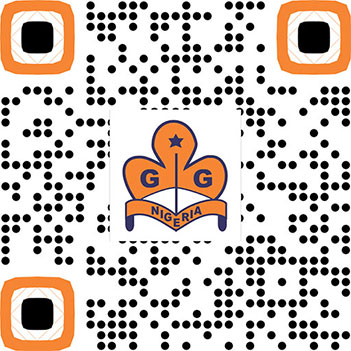The Nigerian Girl Guides Association (NGGA) believes that every girl has the right to be protected, safe, and heard. We empower girls and young women to speak out and take action to challenge themselves and influence others, and through leadership development, community action, peer education, and advocacy bring about positive change on issues that affect them and their communities.
NGGA is committed to providing activities that empower girls and young women to develop their fullest potential. Since 1919, we have been providing non-formal education, giving girls opportunities to develop self-esteem, confidence, and life skills. Currently working in 30 States of Nigeria since 2019, we seek through education, advocacy, and community action to improve the health and safety of every girl through menstrual hygiene management.
Menstruation is a natural, normal biological process experienced by almost all adolescent girls and women. However, when using sanitary products, they still lack basic yet
critical information about menstruation, the confidence to talk openly about their periods, and consider the process to be abnormal. The lack of adequate information about menstruation breeds fears and shame, putting their health and education at risk. Misguided
beliefs, traditional practices, and stigmatization of menstruation contribute to gender
inequality and undermine their basic human rights.
Good menstrual hygiene management (MHM) is essential to ensuring that girls grow up to become strong women who fully
and equally participate in society, thereby living healthy, productive, and self-determined lives.
A major constraint to effective menstrual hygiene management is the high cost of sanitary pads as a result of the harsh economic realities in the country coupled with the negative impacts of COVID 19 on most homes and individuals which has heightened the lack of access to washing, cleaning and changing facilities.
Sanitary pads cost an average of N500 per pack, meanwhile, a large number of families live below the poverty threshold of N1000 daily. The high cost of sanitary pads in Nigeria has made it impossible for poor girls and women to be able to purchase pads during menstruation. Many resort to unhygienic menstrual practices and materials which further leads to Reproductive Tract Infections (RTIs) and death. As much as we have commenced training to teach girls and young women how to produce reusable sanitary pads to help them stay safe, confident, and hygienic during menstruation while creating a means of livelihood for those who choose to produce for sale, it is essential that we raise our voices and speak against the hike in the prices of menstrual products.
Through several engagements with girls on menstrual hygiene education, we have discovered the enormous disparity in Gender equality and the rate of poverty experienced leading to ‘period poverty’ which is the inability to purchase the needed menstrual hygiene products to manage a period. Exposing Girls to unhealthy alternatives of sex in exchange for pads, reduced self-esteem, depression, shyness to seek advice on managing menstrual cramps, request for exemption from work for a period, etc.
We acknowledge the Federal Government’s effort in listing sanitary pads among 20 basic food items exempted from the new value-added tax (VAT) increment of 7.5% which took effect from February 2020, after the president signed the finance act which is the first-ever change of tax policy for menstrual hygiene products.
Nigerian Girl Guides girl-led Advocacy campaign will try to achieve the following;
- Train 60 young women from 30 States of Nigeria as Advocacy Champions.
- Carry out advocacy visits to media houses across the Federation to speak on tax-free menstrual products and free menstrual products for girls and schools and correctional facilities.
- Carry out sensitization in schools and religious institutions
- Pay advocacy visits to State and National Houses of Assembly within the Country.
- Organise walks with other Civil Society Groups in the 30 States
Consequently, the Nigerian Girl Guides Association seeks from the Federal Government, Organizations, and public-spirited individuals for the following;
- Zero taxation on ALL Menstrual products.
- Provision of regulation in the price and quality standard of menstrual hygiene products in Nigeria.
- Provision of free sanitary pads for girls and women in schools, vulnerable households, and correctional facilities.
- Provision of enough safe toilets with running water in all schools and public places.
We are confident that our girl-led advocacy project will yield remarkable results that will help our girls and young women to be confident, comfortable, and healthy.

